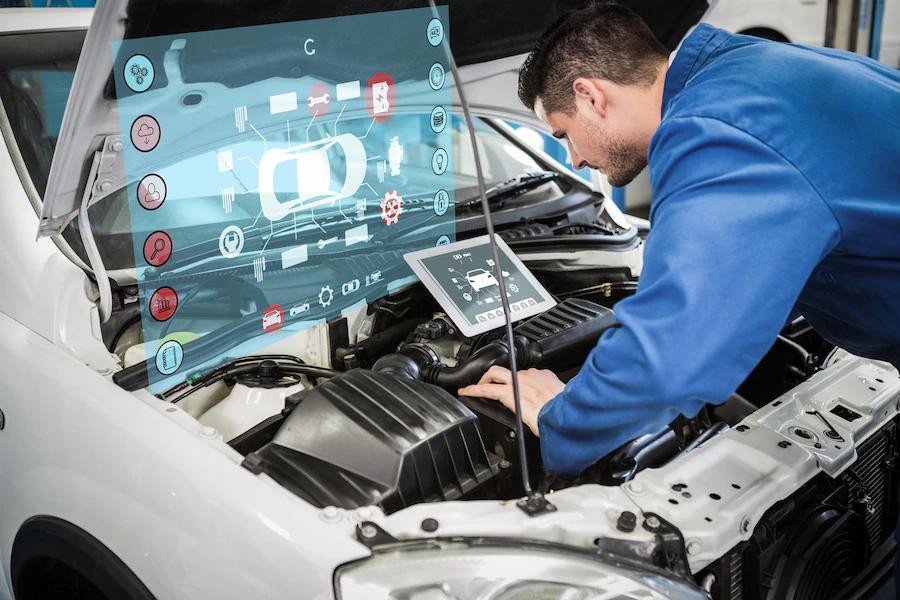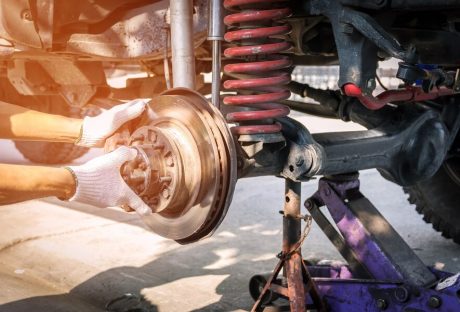In automotive technology, the intercooler plays a critical role in enhancing engine performance by cooling the compressed air from the turbocharger or supercharger, increasing air density, and allowing more oxygen to enter the engine. As automobile manufacturers and aftermarket suppliers vie for superior performance and efficiency, the latest advancements in intercooler technology have emerged as a pivotal development area. New materials, innovative designs, and integration of advanced manufacturing techniques are driving this evolution, paving the way for more efficient thermal management.
These technological leaps not only improve engine power and efficiency but also contribute to the longevity of engine components by reducing thermal stress. Advancements in additive manufacturing, for example, have led to the development of a new intercooler using Additive Layer Manufacturing (ALM), allowing for intricate designs that were previously unattainable with traditional manufacturing methods. Such innovations in intercooler technology underscore the industry’s commitment to not only meet the increasing performance demands but also adhere to stringent environmental regulations by improving fuel economy and reducing emissions.
Key Takeaways
- Intercoolers are critical for improving engine performance by cooling compressed air, leading to increased air density.
- Latest technologies in intercoolers involve new materials, designs, and manufacturing techniques, which enhance power and efficiency.
- These advancements offer potential longevity benefits for engines and align with environmental goals through improved fuel economy and reduced emissions.
Technological Innovations In Intercooler Design
Recent advancements in intercooler technology have led to significant improvements in performance and efficiency for automotive cooling systems. These innovations enhance the functionality and reliability of intercooler replacement parts, offering considerable benefits to users.
Enhanced Cooling Efficiency
The core objective of an intercooler is to reduce the temperature of compressed air before it enters the engine. Emerging technologies in intercooler design now utilize advanced liquid cooling methods and optimized airflow passages to increase heat absorber capabilities. This results in a more efficient cooling system, which is crucial for maintaining the performance of turbocharged and supercharged engines.
Improved Materials And Construction
Intercooler durability and reliability are closely tied to the materials and construction techniques. Introducing high-strength, corrosion-resistant materials ensures that intercoolers can withstand the harsh conditions of high-performance engines. Silicone radiator hoses and intercooler replacement parts from Mammoth Performance are prime examples of how improved materials contribute to the longevity and reliability of intercooler systems.
Integration Of Artificial Intelligence
Artificial intelligence revolutionizes the intercooler domain by enabling smarter, more efficient operations. By analyzing data and adjusting to operating conditions in real time, these AI-driven systems can optimize performance, reduce energy consumption, and prevent issues such as oil contamination. The shift to AI-integrated cooling systems reflects a broader trend towards intelligent, autonomous vehicle components, further bolstering the efficiency and dependability of modern intercoolers.
Impacts And Opportunities In Intercooler Implementation
Recent advancements in intercooler technology significantly enhance engine performance and power while also addressing environmental concerns such as climate change. They present opportunities for technological change in the automotive industry, influencing legal and social aspects of society.
Intercooler Efficiency And Engine Performance
Upgraded intercoolers introduce improved cooling fins and advanced designs that lead to more efficient heat dissipation. This efficiency directly impacts an engine’s power output and overall engine performance. Vehicles that once suffered from heat soak or underperforming issues due to inadequate cooling can benefit from these advancements, resulting in increased horsepower and torque figures. Using better materials and construction methods promotes the longevity and reliability of the intercoolers, ensuring consistent performance even under rigorous conditions.
Environmental Impacts And Social Considerations
Advancements in intercooler technology contribute to the mitigation of climate change impacts. A more efficient intercooler reduces the engine’s tendency to suffer from heat-induced inefficiencies, subsequently decreasing the amount of fuel consumed and reducing emissions. Societal awareness and legal frameworks push for greener technologies, and intercoolers utilizing green hydrogen as a cooling medium exemplify innovation aligning with these social considerations. They serve to bridge the gap between the current state of technology and a more sustainable future, influencing both user practices and industry standards.
Future Outlook And Emerging Markets
The intercooler market anticipates significant growth with increasing demand for high-performance vehicles and stringent environmental regulations. Emerging markets present diverse opportunities where integrating the latest intercooler technologies can lead to enhancements in engine efficiency and a reduction in carbon footprint. With ongoing research directed at optimizing intercooler functions and adopting alternative cooling mediums, the prospects for further innovation remain high. As society leans towards more efficient and eco-friendly solutions, the role of advanced intercooler systems becomes pivotal in shaping future engine technologies and their acceptance in the market.
Conclusion
Advancements in intercooler technology have led to components that are more efficient and lighter in weight, enhancing engine performance across various measures. These improvements translate to better fuel economy and horsepower, proving indispensable for modern turbocharged engines. Users benefit directly through enhanced vehicle longevity and optimal driving experiences, affirming the value of contemporary intercooler systems.
Read Also:






















